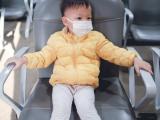Jan 20, 2004 (CIDRAP News) – Chinese authorities said laboratory tests have confirmed two previously suspected cases of SARS (severe acute respiratory syndrome) in Guangdong Province, but the World Health Organization (WHO) said more test results are needed for full confirmation.
Guangdong officials reported Jan 17 that laboratory tests had confirmed SARS in a 20-year-old woman and a 35-year-old man, both of Guangzhou, the provincial capital, according to a Hong Kong Department of Health statement. The cases were the second and third ones to be confirmed in China since the beginning of this month.
The WHO, however, said there was room for doubt in both cases, because investigators had measured antibodies to the SARS coronavirus but had not yet found the virus itself. Tests on both patients were done in WHO reference laboratories in Hong Kong.
In a Jan 17 statement, the WHO's Western Pacific Region office said the woman had high levels of antibodies to the virus and that the antibody level rose fourfold as her illness progressed. But the woman had a similar increase in antibodies to another coronavirus, OC43, which causes common colds, raising the possibility that the measured increase in SARS-specific antibodies was actually a cross-reaction to OC43.
Tests of the 35-year-old man showed antibodies to both the SARS coronavirus and OC43, the WHO said. The blood samples used in the tests were taken early in the man's illness and separated by only 3 days, not long enough to show a fourfold increase in antibody levels, which is the accepted sign of acute infection, the statement said.
The WHO said it requested that more samples from both patients be sent to the Hong Kong labs for polymerase chain reaction tests for the SARS virus and, in the case of the man, for further antibody tests.
The young woman, a waitress in a restaurant that served civet meat, was discharged from a hospital Jan 17, the Associated Press (AP) reported. The report said 100 people who had contact with her were released from quarantine and medical observation.
The 35-year-old patient, a businessman, was in stable condition with no fever but remained in isolation, the AP reported Jan 17. The report said 22 of his 28 contacts had been released from observation.
A team of WHO and Chinese investigators who were in Guangdong last week were unable to pin down the source of infection in any of the three SARS cases, the WHO said yesterday. But the finding of traces of the SARS virus in samples from civet cages in the restaurant where the server worked constituted "strong circumstantial evidence" that she acquired the infection from civets, the statement said.
"This would add to recent studies by scientists in Guangdong Province, China, and Hong Kong . . . that point to the civet cat as a reservoir of the SARS coronavirus," the WHO said. "However, it is still unclear exactly if or how civets transmit the SARS coronavirus to humans." More research is needed on whether other animals harbor the virus and can transmit it to people, officials said.
The WHO's Jan 19 statement said there is no conclusive evidence that the three cases represent a new or milder strain of SARS, despite some health officials' speculation to that effect.



















